- Home
- Chris Ryan
Killing for the Company Page 2
Killing for the Company Read online
Page 2
They stepped out into the cold night air. It had been dark for no more than half an hour, but already it must have been two below. Chet gave himself a moment to take everything in. The street was lined with Communist-era concrete buildings – ‘Makes Peckham look like Belgrave fucking Square,’ Luke had noted when they first arrived – and while the falling snow softened everything a little, Priskovo was still as bleak as the bar they’d just walked out of. The road itself wasn’t busy. A half-empty blue and white bus trundled past, then a couple of vans with tarpaulin over the back. A few locals hurried past on the pavement, huddled against the snow and concentrating on nothing other than getting home. Certainly they paid no attention to Chet or Luke.
Ivanovic’s man had turned left out of the bar. He’d gone about twenty metres and was weaving his drunken way towards a white Ford Transit with a dent in the back. Sean and Marty had crossed the road and returned to the Skoda – just two more faceless figures in the snow – and were opening the doors to climb back in. Chet and Luke had another Skoda, but theirs was brown. They got in and Chet switched on the engine. The wipers cleared the snow from the windscreen to reveal Ivanovic’s man getting into the Transit. Seconds later he moved off. Chet followed, and in his rear-view mirror could see the white Skoda pull out as well.
The Transit drove quickly, swerving slightly as it went. Luke shook his head. ‘Dumber than a box of rocks . . .’
Chet didn’t answer. The snow was hurtling against the windscreen and the road was treacherous. He kept his eye firmly on the target and drove on.
17.51 hrs.
The thin young man whose black rucksack was now lying at the foot of his bar stool was called Anton. He had been cold when he walked into the bar. Now the blood in his veins was running hot. The heat of excitement. It had gone well. He had earned his 50,000 dinars. Now all he wanted to do was get out of this horrible place and back to his small apartment, where his girlfriend was waiting for him. He would buy her flowers. And if he bought her flowers, perhaps she would give him something in return.
The slivovitz made his eyes water and his throat burn. But he supposed he’d better finish it. He caught the barman’s eyes and nodded – a friendly gesture that wasn’t returned. Anton shrugged, then watched as the guy wiped the bar with a frayed, grey rag and picked up the bottle that Ivanovic’s man had left.
A confused look crossed the barman’s face. He held up the bottle, and Anton immediately saw what was puzzling him. The bottle was full.
The heat in Anton’s veins turned to ice. He dismounted from the bar stool, grabbed his rucksack, then ran to the door and out into the street.
They were waiting for him there.
Two men, each twice as broad as Anton, and twice as strong. They grabbed him, one man to each of his thin arms.
‘Pogmati!’ he yelled in Serbian. ‘Help me!’
But none of the passers-by was going to do that.
The two men pulled Anton along the pavement for about thirty metres, then turned into an alleyway. It was dark here, and the snow was drifting against the wall on one side. The tips of Anton’s feet left two lines in the powder as the men dragged him along the alley and out into a courtyard surrounded by the high walls of deserted buildings. Breeze-blocks were piled in one corner and an old cement mixer stood nearby, but it was clear from the virgin snow that nobody had been here recently.
Again Anton shouted for help. But there was no one to hear, and his voice just echoed off the walls.
The first blow was not the hardest, but it was the one that shocked him most: a sudden and brutal knee to the groin that bent him double with pain. From that moment on, Anton was unable to distinguish between the two men. One of them struck him on the side of his head with a wooden cosh. As Anton collapsed to the ground, the other man started kicking him in the stomach and the face. Thirty seconds later blood was oozing from his nose and spewing from his mouth. His teeth were smeared crimson and he was vaguely aware of the way the blood first stained, then melted the snow around him.
He tried to shout again, but the wind had been knocked from his lungs and he couldn’t so much as croak. He didn’t see the knife – smooth on one side, jagged and cruel on the other – until its point was pressed against his neck.
For the first time, one of the men spoke. His voice was heavy and rasping. ‘Sisadzijo! Cocksucker! That pretty little bint of yours waiting back in your flat. My friends are fucking her right now. When we’ve finished with you, we’ll go join them. Let her know what it’s like to feel real men inside her.’
Anton forced himself to speak. ‘Molim te . . . Please . . . please leave her alone. I’ll tell you everything . . .’ They laughed. It wasn’t a nice sound.
‘Tell us everything?’ the man with the knife said. ‘Don’t be stupid. We know everything. You think your little game in the bar was a secret?’ Another boot to the stomach. ‘We’re not torturing you, sisadzijo. We’re killing you.’
Anton shook his head just as he felt a warm sensation spread across his trousers. The men laughed again. ‘Pissed himself. What a joke.’
Anton closed his eyes and started to pray, murmuring words he hadn’t uttered since he was a reluctant child taken to the Orthodox church his mother attended. ‘Our father in heaven, hallowed be your name . . .’
When he opened his eyes again, he wondered for a moment if his prayer had been answered. The man was no longer pressing the knife against his neck, but was standing, looking down at him.
Pushing himself up into a sitting position, Anton looked, through his blood-bleary eyes, towards the two men. The knife man still had the blade in his hand; but his accomplice had something else. It was a thin loop of plastic, about fifty centimetres long, the ends fastened with a small notch. Only when the man holding it started to approach him did Anton work out what it was: a cable tie.
A fresh wave of dread crashed over him. He had heard of these people and what they did with this simple, everyday item. If he didn’t get away now, he never would. He scrabbled around, but a final kick in the chest was enough for the man with the knife to floor him again; seconds later the other one was forcing the loop of plastic over his head.
Anton’s hands went to his neck, as though he was strangling himself. In truth he was protecting it. The knife man was having none of it: with a flick of his wrist he slashed the back of Anton’s hand so deeply that he felt the blade hit bone. The pain was searing, and the blood smeared all over the back of his hands and down his shirt. So much blood. But he kept a hold of his neck because to let go would be suicide.
The knife man dropped the bloodied blade in the snow. Then he grabbed Anton’s hands and pulled them down to his side.
‘Ne . . . No . . . I’m begging you . . .’ Anton’s desperate plea was cut short by the sudden tightening of the cable tie around his neck – a sharp yank that forced the plastic to squeeze his skin and severely restrict the flow of air into his lungs.
The two men stood back to watch as Anton desperately tried to loosen the cable tie. To get his fingers in between the plastic and the skin. It was impossible.
His lungs started to burn as his body silently screamed for air. He fell to his knees again, his panic matched only by the agony of his breathlessness. The knife was still there on the ground, no more than two metres away. Anton reached for it with his damaged, bleeding hand.
If he could just cut through . . .
But as he stretched for the knife, one of the men was there, stamping on the back of his hand with such force that Anton would have screamed like an animal if he’d only had the breath.
He collapsed.
Everything was spinning now. Confused. He saw the snow falling in slow motion. He saw the blood pumping from his hands. He saw the two men standing over him, the bright light of cruelty in their eyes.
And there was a moment, before Anton passed into unconsciousness and then death, when the pain disappeared and the lack of oxygen in his blood left him with only a sleepy, doped-up feeling
.
The two men didn’t wait to check that he was dead. They knew the cable tie would do its work, and anyway they still had to get their rocks off with Anton’s girlfriend.
18.00 hrs.
The little town soon melted away into deserted outskirts, then came empty countryside. After following the Transit for ten minutes, Chet pulled over and allowed the white Skoda to overtake. Ivanovic’s man was probably too drunk to clock a tail, but they still had to follow SOPs. Once Sean and Marty were trailing the van, Chet caught up with them and followed at a distance.
Luke was studying a small map of the area, following their route carefully by the light of a thin, red-filtered torch. On his lap was a bulky GPS unit, blinking their position at him.
The snow fell harder, making the going slow, and the number of other cars was reducing. The white Skoda had been leading for about five minutes when Chet’s earpiece burst into life. It was Sean. ‘No one else on the roads. We should kill the lights.’
‘Roger that.’ Chet pulled up and turned off the headlamps; up ahead he could see the white Skoda had done the same. Beyond that, only just visible through the blizzard, were the red rear lights of the Transit. Chet reached behind the driver’s seat and located his night-vision headset, which he put on and engaged. The world became bathed in green light, and the tail lights of the Transit were perfectly bright. So long as they had line of sight, they could follow a couple of klicks behind and Ivanovic’s man would be none the wiser.
They drove in silence, Luke keeping any wisecracks to himself. After another five minutes, Luke – who was still consulting the map – spoke into the comms. ‘This road ends at the edge of a large lake,’ he said so that both Chet and the others could hear. ‘Unless our man fancies a swim, that’s where we’ll be stopping. There’s no other roads off this one.’
‘How far to the water’s edge?’ Sean asked.
‘Two klicks, buddy. No more.’
‘We’ll stop a klick away and approach on foot,’ Chet said. ‘Our man might be pissed up, but that doesn’t mean his friends are. Any closer than that and they’ll be able to hear our vehicles even if they can’t see them.’
Silence over the radio meant everyone agreed.
Five minutes later they pulled up in a rough lay-by – more like a ditch – where tractors could pass, though there would be no tractors at this time and in this weather.
Chet turned to Luke and asked, ‘You got a fix?’
Luke took a moment to double-check their position, on both the map and the GPS unit. He nodded. ‘I’ll call it in.’
The secure comms system that allowed them to communicate with base back over the border was installed in the glove compartment. Luke spoke into the bulky handset. ‘Zero, this is Delta Three Tango. Over.’
A moment of silence, then the comms crackled. ‘Delta Three Tango, this is Zero.’
‘Advancing now on the Alpha. Stand by to record our position.’
‘Standing by, Delta Three Tango.’
Luke checked the GPS unit, before reading out their grid reference slowly and clearly. He waited for it to be repeated over the comms before disconnecting and climbing out of the car.
Sean, who had been driving and also had his NV goggles fitted, opened up the boot of the white Skoda to reveal the men’s gear. They took off their donkey jackets and ops waistcoats, fitted their body armour and replaced the waistcoats. Each man put on a helmet, cut away around the ears.
‘UN badges?’ Marty asked. He meant the armbands, powder blue with large white writing. By rights, if they were about to make an arrest under the auspices of the UN, they should be wearing them.
‘Fuck that,’ Sean growled. ‘We’ll be spotted with that shit on.’ The voice of experience and he was right. The white lettering would be a beacon in the darkness.
Each man removed his M16, fully loaded and with Maglites attached; Luke and Marty also mounted their NV on their helmets.
Chet took a kite sight from the boot and used it to scope out the environment: the surrounding countryside was flat and sparse, no less bleak and industrial than the town they’d just left. In the distance he could make out the red lights of the Transit, still ploughing through the snow. Beyond that, perhaps there was another, more distant light; in this visibility it was hard to be sure.
‘I hope our lad in the bar wasn’t bullshitting us,’ Luke said as he slung his assault rifle across his chest. ‘I fucking hate the snow. If we get down to the water and find Mr White Van Man’s just been looking for somewhere quiet to take a leak, I’m heading straight back up there to shove his rucksack up his arse.’ No one replied. ‘Come back Brecon Beacons,’ he grumbled to himself. ‘All is forgiven . . .’ He cocked his rifle and set it to the lock position.
The unit headed up the road single file, in the tracks left by the Transit so their footprints didn’t show up, each man five metres from the next. The blanket of snow deadened all sound – even their footsteps – and the air was filled with the frosty clouds of their breath.
18.32 hrs.
As unit leader Chet was second in line. He held up one hand. Everyone stopped – including Luke, who was at the front as lead scout but checked the men behind him every twenty seconds. Chet looked through the kite sight to scope out what lay ahead. As he recced the place in his mind, he spoke out loud so that the others could tell what he’d seen.
‘The Transit’s come to a halt approximately 100 metres away, directly to the north,’ he said, his voice barely louder than the settling snow. ‘No other vehicles, no sign of enemy targets. A small copse of trees on its west side, a large building on its east. More trees eastwards of that. Looks like some kind of deserted farmhouse. I can see one, two, three outhouses, but there may be more. Two rooms on the western side of the house have lights on; everything else I can see is in darkness. Luke, I think I can see your lake just beyond the house, but it’s difficult to make out.’
He lowered the sight to see Sean examining the ground in front of them, snow gathering on his beard. ‘One set of vehicle tracks, freshly laid. That’s the Transit. Snow could have covered any others, but I can’t see any indentation. I’d say fuck all else has come up here in the past four or five hours.’
‘Footprints?’ Chet asked.
‘Yeah. A deer. Maybe a wild boar. No sign of humans.’
Chet nodded and turned to Luke and Marty. Their faces were intent. Alert. ‘When we get down there, two groups. Sean, Marty, head to the east side of the house and secure any exits there. If Ivanovic knows we’re coming for him, he’ll most likely try to escape that way. You grab him if he does.’
‘It’ll be a pleasure,’ said Sean.
‘Luke, we’ll take the front. Identify the main power supply and kill the lights. Then house clearance room by room. I want any guards dead before they have the chance to shout out. We’ll flush the fucker out that way.’
Luke nodded.
Each man performed a final check on his weapons, engaged his NV and turned to Chet, waiting for the word.
‘OK,’ he breathed. ‘Let’s move.’
TWO
18.49 hrs.
The road to the lake went gently downhill, but in the snow it still took ten minutes to travel it. They were fifty metres from the house when Sean and Marty veered off to the east so they could get round to the back.
Chet and Luke continued to follow the line of the Transit’s tracks. When they reached the van – parked about fifteen metres from the front entrance of the house, its exhaust still warm from its journey – Chet spoke.
‘Cover the door,’ he said. ‘I’ll find the power.’
Luke nodded, then settled down on one knee in the firing position while Chet silently approached towards the house.
Now he was closer, he could make more sense of the structure. It was an old place, timber-clad. The paint – he couldn’t tell what colour it was in the dark – was peeling and the window frames rotten. Of the two lights that were on, one was on the ground floor and
the other on the first. Chet kept away from those parts of the snowy ground where the windows cast light.
There was no electricity pylon leading to the house, which meant there must be some other power source. As Chet crept round to the northern side, his ears began to tell him what it was: the low hum of a petrol generator. He found it in a small outbuilding. The warmth of the generator had melted the snow for a metre around the building; inside, the air was filled with the greasy stench of fuel. It took Chet only a few seconds to locate the pump, with a plastic isolating valve at one end. He turned this. The engine spluttered, and the buzz of the generator died away immediately, to be replaced by total silence.
He made his way back to Luke, who hadn’t moved from the firing position, his rifle aimed firmly at the front door of the house. ‘Anything?’ Chet whispered.
Luke shook his head.
They gave it a minute. A minute for raised voices or someone inside to walk out and check the genny. A minute for them to walk into a flying bullet from Luke’s suppressed M16.
No one came.
Why was no one coming?
Chet spoke into the radio. ‘Sean, Marty?’
‘Roger that,’ Sean’s voice filled his earpiece.
‘Any movement your side?’
‘Negative.’
Chet and Luke looked at each other. ‘If Ivanovic and his numpties are just hiding out here, they probably don’t know how the house works,’ Luke suggested.
Again Chet peered towards the house, then spoke into his radio. ‘We’re moving in.’
Chet’s voice rang clearly in Sean’s earpiece. Situated near the eastern wing of the house, Sean was about twenty metres from the back door, just behind a metre-high wall that marked the end of a back yard. His right knee was pressed firmly into the snow, the butt of his rifle was tight into his shoulder and the weapon was trained on the exit. Marty was in the same position, another ten metres along the wall. Fifteen metres behind them both was a line of tall spruce trees, heavy with snow. Both men had their NV goggles engaged, and the IR-filtered Maglites on their weapons lit up the area in a ghostly green haze, for them but for no one else. Not that there was anyone else. The whole place was as silent as a graveyard.

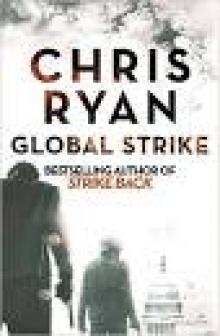 Global Strike
Global Strike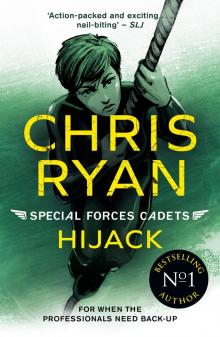 Hijack
Hijack Special Forces Cadets 2
Special Forces Cadets 2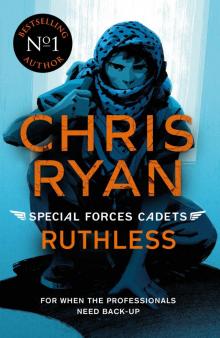 Ruthless
Ruthless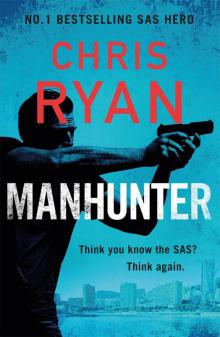 Manhunter
Manhunter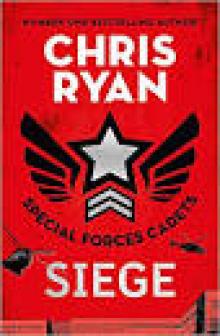 Special Forces Cadets 1
Special Forces Cadets 1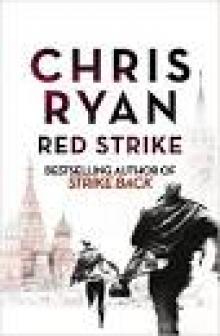 Red Strike
Red Strike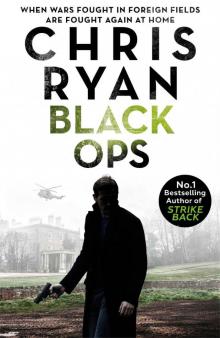 Black Ops
Black Ops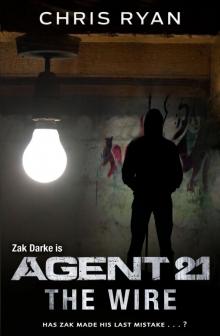 Agent 21: The Wire
Agent 21: The Wire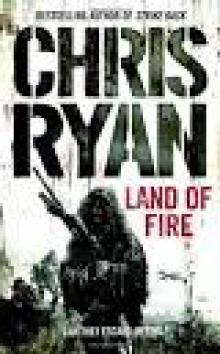 Land of Fire
Land of Fire Alpha Force: Fault Line
Alpha Force: Fault Line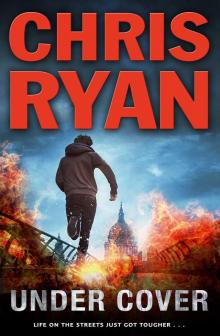 Under Cover (Agent 21)
Under Cover (Agent 21)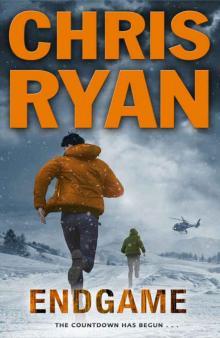 Endgame (Agent 21)
Endgame (Agent 21) Red Centre
Red Centre Blackout
Blackout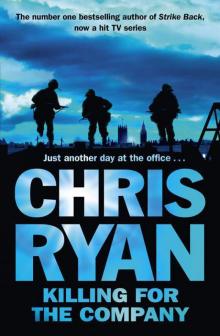 Killing for the Company
Killing for the Company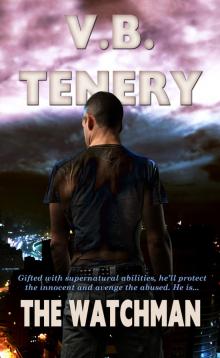 The Watchman
The Watchman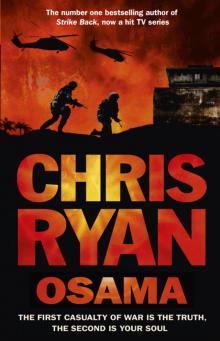 Osama
Osama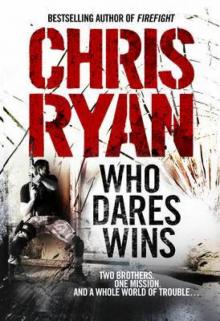 Who Dares Wins
Who Dares Wins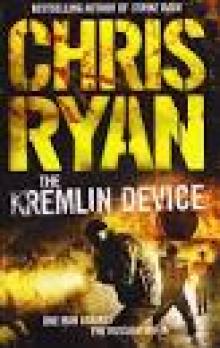 The Kremlin Device
The Kremlin Device Hunter Killer
Hunter Killer Alpha Force: Untouchable
Alpha Force: Untouchable Stand By Stand By
Stand By Stand By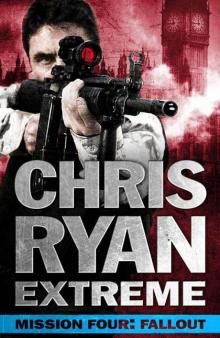 Chris Ryan Extreme: Hard Target: Mission Four: Fallout
Chris Ryan Extreme: Hard Target: Mission Four: Fallout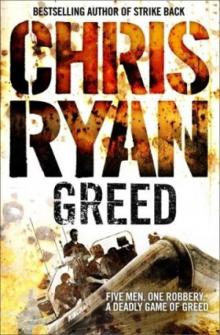 Greed mb-1
Greed mb-1 Alpha Force: Desert Pursuit
Alpha Force: Desert Pursuit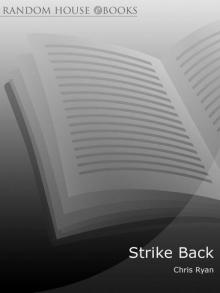 Strike Back
Strike Back Greed
Greed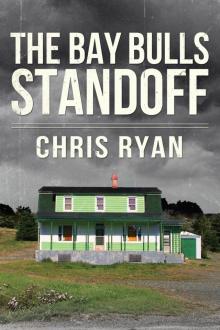 The Bay Bulls Standoff
The Bay Bulls Standoff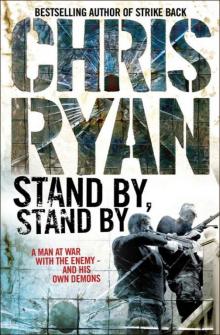 Stand By, Stand By gs-1
Stand By, Stand By gs-1 Outbreak
Outbreak Hunted
Hunted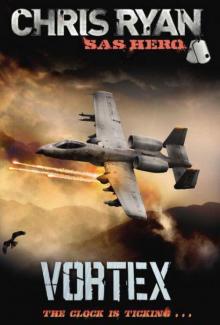 Vortex cr-4
Vortex cr-4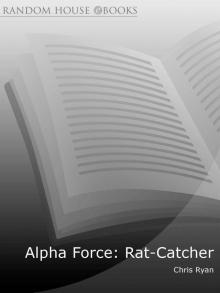 Rat-Catcher
Rat-Catcher Vortex
Vortex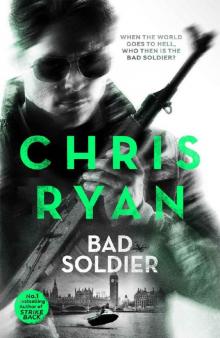 Bad Soldier
Bad Soldier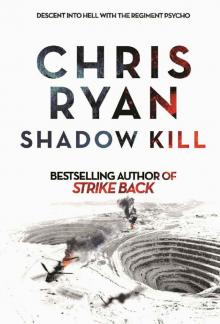 Shadow Kill: A Strikeback Novel
Shadow Kill: A Strikeback Novel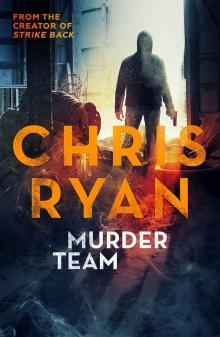 Murder Team (Kindle Single)
Murder Team (Kindle Single) One Good Turn
One Good Turn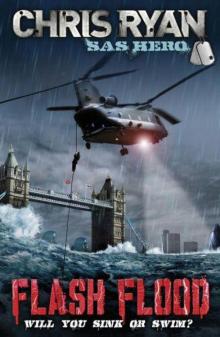 Flash Flood cr-1
Flash Flood cr-1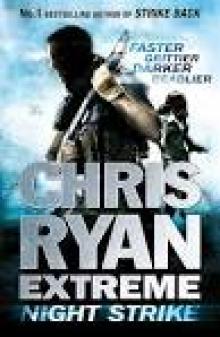 Night Strike
Night Strike Wildfire
Wildfire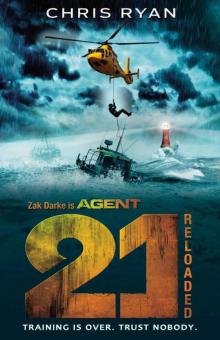 Agent 21: Reloaded: Book 2
Agent 21: Reloaded: Book 2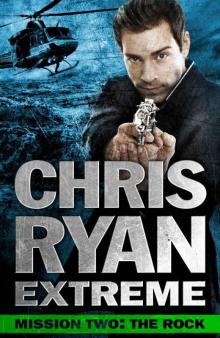 Chris Ryan Extreme: Hard Target: Mission Two: The Rock
Chris Ryan Extreme: Hard Target: Mission Two: The Rock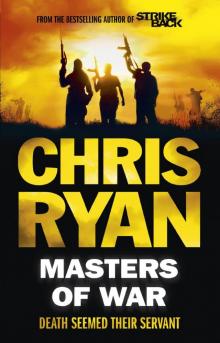 Masters of War
Masters of War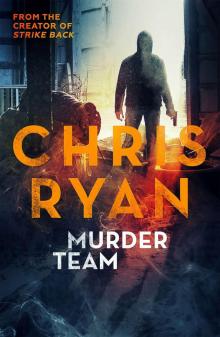 Murder Team
Murder Team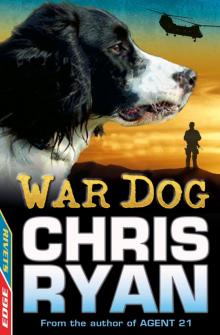 War Dog
War Dog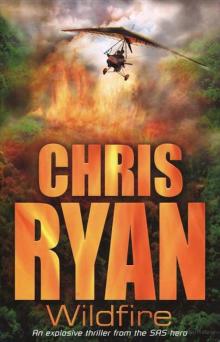 Wildfire cr-2
Wildfire cr-2 Survival
Survival The One That Got Away - Junior edition
The One That Got Away - Junior edition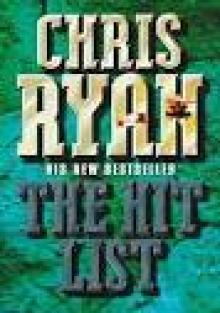 The Hit List
The Hit List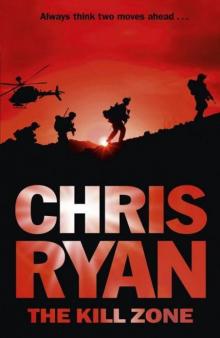 The Kill Zone
The Kill Zone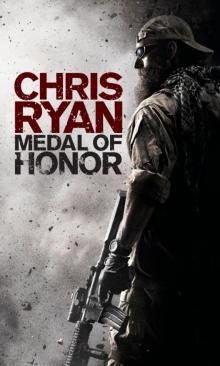 Medal of Honor
Medal of Honor Battleground
Battleground Twister
Twister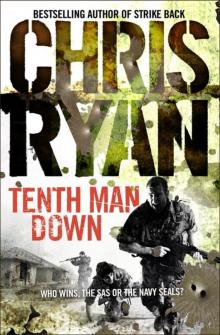 Tenth Man Down gs-4
Tenth Man Down gs-4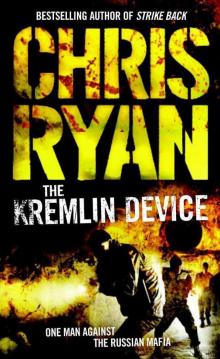 The Kremlin Device gs-3
The Kremlin Device gs-3 Hostage
Hostage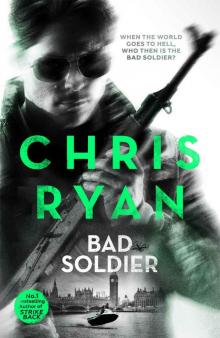 Bad Soldier: Danny Black Thriller 4
Bad Soldier: Danny Black Thriller 4 Alpha Force: Blood Money
Alpha Force: Blood Money Firefight
Firefight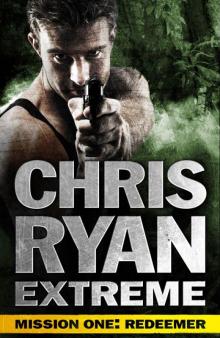 Chris Ryan Extreme: Hard Target: Mission One: Redeemer
Chris Ryan Extreme: Hard Target: Mission One: Redeemer Hit List
Hit List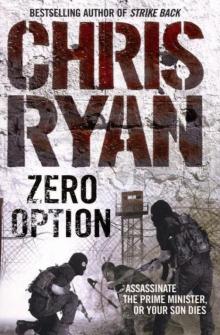 Zero Option gs-2
Zero Option gs-2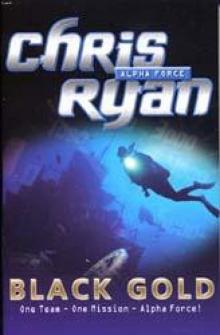 Black Gold
Black Gold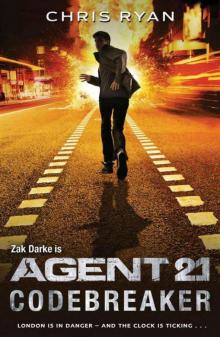 Agent 21: Codebreaker: Book 3
Agent 21: Codebreaker: Book 3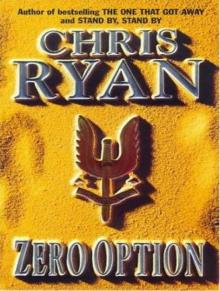 Zero Option
Zero Option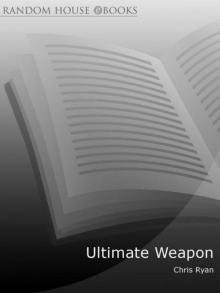 Ultimate Weapon
Ultimate Weapon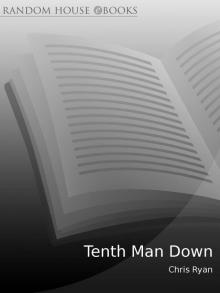 Tenth Man Down
Tenth Man Down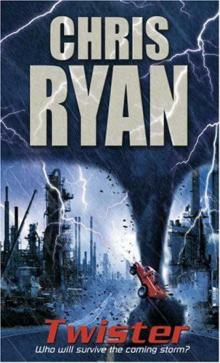 Twister cr-5
Twister cr-5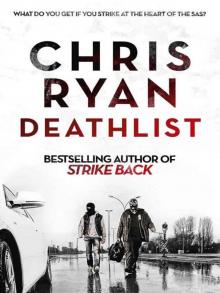 Deathlist
Deathlist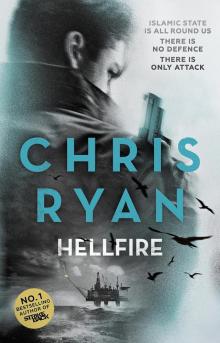 Hellfire
Hellfire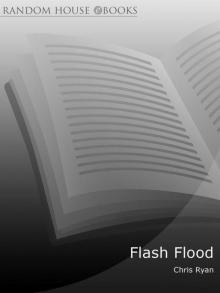 Flash Flood
Flash Flood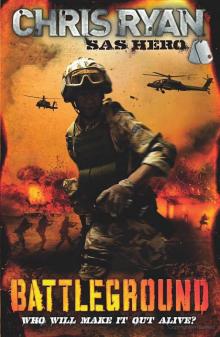 Battleground cr-6
Battleground cr-6 The Increment
The Increment